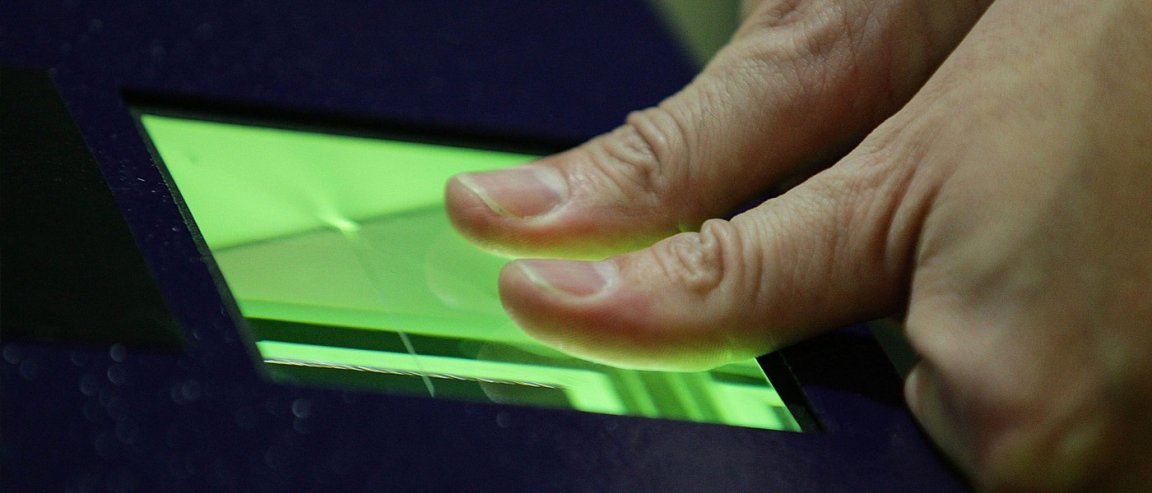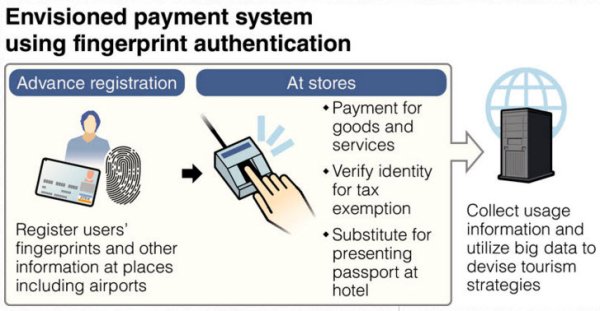
Forget having to pull your wallet out of your pocket ever again. For foreign tourists coming into Japan, the country is currently undergoing testing of a new payment and identification method that requires only your fingerprint.
Some companies are already finding ways to phase out the credit card. But the entire country hopes to implement fingerprinting just in time for the Tokyo 2020 Olympics.
The Perks
When you arrive in Japan as a tourist, you place two fingers on a designated scanner (at the airport or elsewhere). This registers your fingerprints and other data, including credit card information. You only need to scan your prints once, and you’re good to go.
As of now, there are 300 souvenir shops, restaurants, and hotels in Japan that are currently experimenting with fingerprinting. They’re predominantly in popular tourist areas such as Kamakura, Hakone, and Yugawara in Kanagawa Prefecture. By next spring, the list of participating regions and prefectures will enlarge. By 2020, the Japanese government plans to recognize this method across the entire country, in the hopes of drawing in 40 million foreign tourists.

One important perk of fingerprinting is no longer having to fill out tax exemption forms. Checking into hotels will be much quicker too, since you’ll no longer have to show your passport to a concierge. All your information is available right at your fingertips—literally.
Restaurants and hotels aren’t the only ones participating in this experiment. Tokyo-based Aeon Bank will begin testing the fingerprint-based system by the end of next month at the earliest. You’ll no longer have to use an ATM card, and it’ll hopefully reduce the amount of credit card fraud.
Each time someone uses the fingerprint system, data is collected on frequency, spending, and location. The huge collection of data then shows the government how to improve upon the tourist infrastructure over time.
The Downside
Some people think that fingerprinting gives away too much information about oneself. But a bank official commenting in the Yomiuri Shimbun stated that “the system is also superior in the area of security, such as preventing people from impersonating [Aeon Bank’s] customers.”
The experiment will educate people on how to protect one’s privacy against fraud using this method.
Will fingerprinting really prove to be easier for tourists in the near future? Lost or stolen credit cards might not be an issue anymore, but will identity theft continue? What are the implications of having an entire country rely on fingerprints, especially with millions of tourists rushing in for the 2020 Tokyo Olympics?
We shall see.
